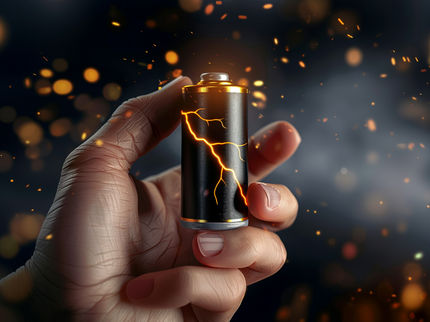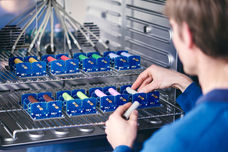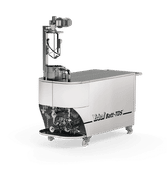Promoting battery recycling in Europe and industrial by-products to power batteries
The role of the University of Oulu in battery chemistry research is further strengthened
Advertisement
New large-scale research projects aim to improve the recycling and recovery of battery materials in Europe and to develop more sustainable battery technologies.The University of Oulu's sustainable chemistry research is involved in two three-year international projects to develop new electrode materials for batteries by using industrial by-products and recycled batteries. International projects develop new electrode materials for batteries by using industrial by-products and recycled batteries. The European recycling market will benefit from examples from Finland, one of the world leaders in the lithium-ion battery value chain, where used batteries are well recovered.
The research projects support the EU's Clean Transition objectives, where strategic critical raw materials such as lithium, cobalt, nickel and copper used in energy storage and in various types of batteries, are important. The EU aims to reduce its dependence on imported raw materials and increase its independence in the global battery industry. The EU batteries regulation of last year changes the way batteries are manufactured and recycled to take into account the whole life cycle of batteries.
One of the EU Horizon Europe projects is SAFELOOP, which started in 2024 and will investigate the use of recycled raw materials in batteries. The project is coordinated by the University of Oulu, Finland, and it involves research institutes and companies from European countries and elsewhere: Finland, Germany, Poland, Ukraine, France, Turkey, Greece, Denmark, USA, UK, and Australia.
The main objective of the SAFELOOP project is to improve the durability of lithium-ion batteries, and even double their lifetime compared to 2019. It also aims to increase the recyclability of batteries and accumulators by 15% by 2030. Currently, it is estimated that only around 10-15% of the material used in the production of lithium-ion batteries in Europe is recycled. Lithium-ion batteries are used in portable devices such as computers and mobile phones due to their light weight, and the biggest growth potential is currently in so-called "driving batteries" such as batteries for all-electric cars and machinery.
"Recycling of battery materials is relatively low at European level, so there is untapped potential. For example, full electric cars are so new that there is not yet a large recycling market for car batteries. In Finland, batteries from smartphones, computers and small appliances that are sent for recycling are fairly well recovered," says Professor Ulla Lassi from the University of Oulu. Finland is among the global leaders in the lithium-ion battery value chain.
The SAFELOOP project also aims to improve the safety of lithium-ion batteries. All 2 Ah lithium-ion batteries made from recycled raw materials will undergo standard safety tests.
Another major EU Horizon Europe project is Streams, which aims to strengthen battery material supply chains. This will be done, for example, by developing new methods for the sustainable production of battery anode and cathode materials.
The use of both virgin and recycled battery materials will be explored, including the use of industrial by-product for battery materials. "For example, we are testing by-products from metal processing, such as zinc, nickel and aluminium production, and their integration into primary cathode material production, which not only allows us to increase the share of recyclable materials, but also to reduce dependence on primary critical raw materials," says Lassi.
The Streams project will also involve the pilot-scale manufacture of battery cells using established production processes, so that the results can be easily exploited in industry.
The role of the Finnish University of Oulu in battery chemistry research is further strengthened, as it is involved in both three-year projects. The recent collaboration between researchers and industry has resulted in impressive research results that have boosted technological developments in the extraction, processing and recycling of lithium-ion battery metals and materials. "Research collaboration with companies is expanding nationally and internationally," says Lassi.
Other news from the department science
These products might interest you
Most read news
More news from our other portals
See the theme worlds for related content
Topic World Battery Technology
The topic world Battery Technology combines relevant knowledge in a unique way. Here you will find everything about suppliers and their products, webinars, white papers, catalogs and brochures.

Topic World Battery Technology
The topic world Battery Technology combines relevant knowledge in a unique way. Here you will find everything about suppliers and their products, webinars, white papers, catalogs and brochures.





































































